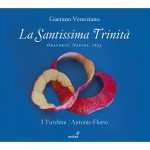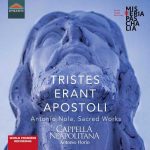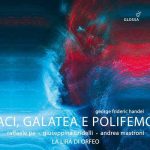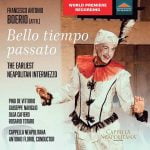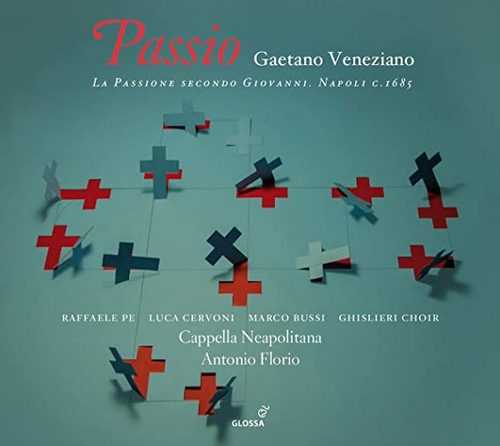
Composer: Gaetano Veneziano
Performer: Ghislieri Choir
Orchestra: Cappella Neapolitana
Conductor: Antonio Florio
Audio CD
Number of Discs: 1
Format: FLAC (tracks)
Label: Glossa
Size: 1.06 GB
Recovery: +3%
Scan: yes
La Passione secondo Giovanni (arr. A. Florio)
01. Passio Domini nostri Jesu Christi (Evangelista)
02. Iesus itaque sciens omnia (Evangelista, Christus, Chorus)
03. Mitte gladium tuum in vaginam (Christus, Evangelista, Ancilla, Simon Petrus)
04. Stabant autem servi et ministri (Evangelista, Christus, Servus I)
05. Si male locutus sum (Christus, Evangelista, Chorus, Simon Petrus, Servus II)
06. Quam accusationem affertis (Pilatus, Evangelista, Chorus, Christus)
07. Et dabant ei alapas (Evangelista, Pilatus, Chorus)
08. Non haberes potestatem (Christus, Evangelista, Chorus, Pilatus)
09. Scriptura impleretur, dicens (Evangelista, Christus)
Cappella Neapolitana, Ghislieri Choir
Antonio Florio
Raffaele Pe (counter-tenor), Luca Cervoni (tenor), Renato Dolcini (bass),
Valentina Argentieri (soprano), Marco Bussi (baritone)
Recorded: 12-15 April 2015
Recording Venue: Collegio Ghislieri, Pavia, Lombardy, Italy
Antonio Florio has discovered and prepared a performing edition for Glossas new Passio release of the 1685 St John Passion setting by the Neapolitan composer Gaetano Veneziano, which features countertenor Raffaele Pe in the technically demanding role of the Evangelist. Until recently, Italian Passiontide settings from the Baroque era have been thought to amount to just the one, that by Alessandro Scarlatti, but the score by Veneziano who was a contemporary of Scarlatti, a maestro in the royal chapel as well as a favoured pupil of Francesco Provenzale has been located in the Archivio dellOratorio dei Girolamini in Naples, and displays a surprising blending of modernity and an older style in its instrumental accompaniment (here provided by Florios Cappella Neapolitana). Moreover, it provides an extrovert and atmospheric response to the Gospel text for the roles of Christ (taken by tenor Luca Cervoni) and Pilate (the bass Marco Bussi) as well as for the interventions of the crowd (sung here by the Ghislieri Choir). Having already done much to revive the name of Gaetano Veneziano, through his recording of the later oratorio, La Santissima Trinità, as well as through discs with other sacred music, Antonio Florio has now created a further fascinating release of Baroque Italian music from Naples, and one which benefits from a typically absorbing booklet essay from Dinko Fabris.
